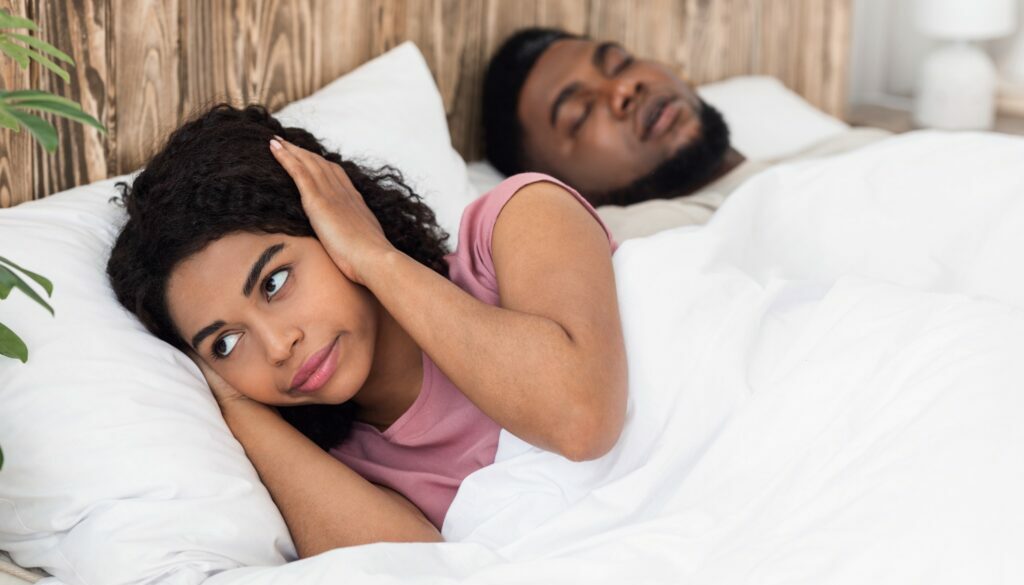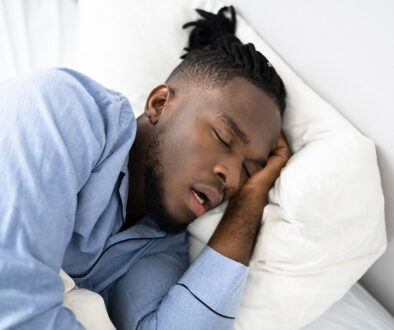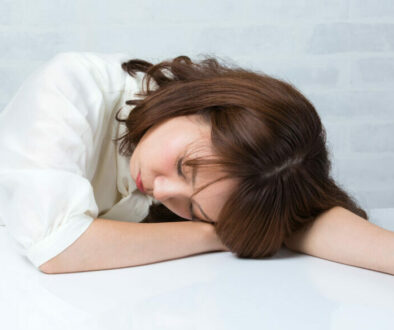What Is the Best Treatment for Sleep Apnea?
Hold your breath for 60 seconds. Wait 30 minutes and hold it again.
Now, do that twice an hour for eight hours.
It’s difficult to get anything done, isn’t it?
Now imagine doing that all night—there’s no way you would get a good night’s sleep!
This is the case for many with obstructive sleep apnea. Those with sleep apnea can stop breathing hundreds of times during the night. The result can be deadly.
We’ll take a look at why good sleep is so vital to your health, the dangers and causes of snoring, and how to overcome sleep apnea through the use of a CPAP machine.
Is Sleep Apnea Deadly?
It’s obvious that sleep apnea is a major convenience. But deadly?
Absolutely.
Here are four ways sleep apnea can have a detrimental effect on your health. It can contribute to the following:
1. DIABETES
Those with diabetes are at a greater risk of health problems. If not treated correctly, complications from this disease can lead kidney damage, nerve damage, blindness and amputation.
2. DAYTIME SLEEPINESS
Who hasn’t struggled with the 3 p.m. afternoon slump at work? With sleep apnea, your body isn’t getting the refreshing sleep that you need. That means you could be in danger of falling asleep while driving or while operating machinery. If you find yourself consistently and severely drowsy during these important tasks, speak with one of our Raleigh area ear, nose and throat doctors who can help you.
3. HEART DISEASE
Sleep apnea puts you at risk for heart disease—the number one killer of Americans.
4. STROKE
A stroke is a debilitating “brain attack” that can cause partial paralysis and loss of motor functions. Sleep apnea can cause high blood pressure, which increases your risk of a stroke.
Americans Aren’t Getting Enough Sleep
One-third of all Americans are sleep-deprived, according to information from the Centers for Disease Control (CDC) . If you’re not sure how much sleep you should be getting, the CDC states that adults aged 18 to 60 should be getting at least seven hours of sleep every night.
Those who don’t are putting themselves at risk for conditions such as diabetes, high blood pressure, stroke and even heart disease. In addition, lack of sleep often causes anxiety and mental–as well as physical–exhaustion.
Those who don’t experience quality sleep also report that they have poorer overall health, according to the National Sleep Foundation. Their statistics reveal:
- 45% of Americans say that in the past week, insufficient sleep has affected their day-to-day activities.
- 35% rate their sleep quality as “poor” or “fair.”
- 70% of men are snorers, compared to 24 percent of women
One factor that figures into keeping Americans tossing and turning is sleep apnea. If left untreated, it can cause serious health problems.
What Is Sleep Apnea?
Sleep apnea is a chronic condition that occurs when you stop breathing periodically during sleep. These pauses can be a few seconds long or sometimes as long as a minute, and they can occur more than 30 times an hour throughout the night.
Not only does this result in poor sleep, but it also deprives the body of needed oxygen, resulting in a potentially dangerous situation.
According to the Sleep Foundation, sleep apnea is one of the most common sleep disorders in the U.S. While it’s more common in men, it can also affect women and children. It’s also most common in those who are overweight or obese.
While snoring is a common symptom of sleep apnea, not everyone who snores has sleep apnea, which is why it’s important to have a sleep study to determine the cause of snoring. Usually, a family member or bed partner notices this consistent snoring, which may also be followed by choking or gasping.
What Are the Warning Signs of Sleep Apnea?
Snoring is one of the major symptoms, though not everyone who snores will develop sleep apnea.
Other Signs of Sleep Apnea Include:
- Mood swings
- Depression
- Morning headaches
- Memory problems
- Irritability
- Frequent nighttime urination
- Increased daytime drowsiness
By taking a closer look at the most common causes of snoring, the doctors at Raleigh Capitol Ear, Nose and Throat are in a unique position to help you, particularly if you have a structural problem with your mouth or nose.
If you’re still not sure if you have sleep apnea, finish this quiz and share the results with one of our doctors.
What Happens When You Snore?
Snoring is caused when excess tissue blocks the airway. The airway then collapses when normal muscle relaxation occurs.
Who is most likely to snore?
Snoring is more common in men than women, and about half of all Americans snore at some point in their lives. Although men are less likely to snore after they turn 70, about 40 percent of them are habitual snorers. Twenty-four percent of women snore.
You’re also more likely to snore if :
- You sleep on your back
- You use alcohol or other depressants
- You’re congested from allergies
- You have a cold
- You have a structural problem with your nose or throat
- You’re obese. Being overweight also makes it difficult to stop snoring because you may have extra tissue in the back of your throat, which narrows your airway.
What to Do if Your Spouse Snores
Giving your partner a nudge during the night or encouraging him or her to turn over may be a temporary solution, but it’s not addressing the long-term problem or the complications that can result from sleep apnea.
If your spouse snores, visit to our ENT doctors in Raleigh should be the first item on your list. Our ENTs will determine the exact cause and nature of the snoring. This may involve a sleep study or other tests. We’ll also check for any structural abnormalities that could be contributing to the problem.
How Is Sleep Apnea Treated?
The good news is that sleep apnea can be treated successfully. Often, this involves the use of a CPAP machine. This machine has a mask that fits over the nose, and sometimes the mouth. The CPAP machine delivers a steady stream of oxygen to keep the throat open, eliminating snoring and ensuring you don’t stop breathing during the night.
What is a CPAP Machine?
CPAP stands for Continuous Positive Airway Pressure. A CPAP machine is a small device that has a mask and flexible tubing. You wear the mask while you sleep. Oxygen is delivered through the mask, providing a gentle, constant stream of air. This pressure keeps your airways open throughout the night.
The tubing is long enough to enable you to turn over in your sleep, and the machine itself doesn’t make loud noises, so you and your partner won’t be awakened by it, according to the American Academy of Sleep Medicine.
There are different types of masks you can use with your CPAP machine:
- A mask that covers only your nose
- One that covers both your nose and mouth
- “Nasal pillows” that fit in your nostrils
The type of mask you use is not as important as ensuring it is a good fit.
Your CPAP units may have a “ramp” setting. This enables your CPAP machine to start the air pressure at a low level, gradually increasing it until it reaches the optimum level to treat your sleep apnea. This will help you fall asleep more comfortably.
Tips for Using your CPAP machine
It might take a while to get used to your CPAP machine. Remember that this is a lifestyle change and it may take time. Consider these useful tips:
- Start by wearing your mask for short periods during the evening. For example, wear it while watching TV or reading.
- Use the CPAP every night. This is important not only for its effectiveness, but to help you get used to it. If you don’t use it consistently, it’s more difficult for your body to adjust.
- Use your CPAP when you take a nap.
- Your CPAP should feel natural when you’re trying to fall asleep—so don’t be discouraged if it takes time.
- Be sure your mask is adjusted properly—a good fit is vital for effective therapy. We’ll be happy to assist you to ensure a good fit. If the pressure feels too high, you can use the “ramp” mode on your CPAP unit.
- Your CPAP works best when you use it for the entire night, so be consistent in your use.
- You may wish to use a special pillow that is shaped to accommodate CPAP equipment.
- Clean your equipment regularly.
Do you have questions? Please don’t hesitate to contact us. We’re here to guide you through the entire process, and we realize that learning to use a CPAP machine may take time.
What are the benefits of CPAP treatment?
First, it eliminates breathing pauses caused by sleep apnea. Therefore, you should be able to have uninterrupted sleep throughout the night without snoring or choking.
Other Benefits of a CPAP Machine Include:
- Feeling more alert during the daytime
- Improved mood
- Better memory
- Reduced risk of diseases associated with sleep apnea
Remember that using a CPAP machine is a lifestyle change; it may be a challenge at first, but the benefits far outweigh the temporary inconvenience.
How Do You Treat Sleep Apnea without CPAP?
While a CPAP machine is incredibly effective, there are other methods of treating sleep apnea. We’ll work closely with you to determine which would be best for you.
These other methods of treatment include:
Lifestyle Changes
If you’re overweight, smoke, or drink alcohol, you’re more likely to have sleep apnea. While regular exercise and nutritious diet won’t necessarily get rid of your sleep apnea, they have a lot of other benefits.
Mouthguards
By repositioning your tongue and jaw, mouthguards open up your airway so you can breathe without obstruction.
Treating Structural Problems of Your Nose and Mouth
Could it be that you need surgery to alleviate your snoring? It’s possible, particularly if you have problems with your mouth and nose anatomy. For example:
- Large tonsils
- Extra tissue in the back of the throat
- Nasal obstruction due to:
- Deviated septum
- Polyps
- Nasal allergies
- An elongated uvula (the tissue hanging in the back of your throat)
TIPS for Getting a Good Night Sleep
There’s more to getting a good night’s sleep than CPAP machines and sleep apnea treatment. Everyone can benefit from the principles of good “sleep hygiene.”
Following these steps can help ensure you get an adequate amount of quality rest:
- Be sure to avoid caffeine and other stimulants before bedtime.
- Use alcohol only in moderation.
- Don’t take daytime naps that are longer than 30 minutes—despite popular belief, naps do not compensate for inadequate nighttime sleep.
- Exercise regularly, though avoid working out too close to bedtime
- Ensure you’re exposed to natural light during the day—particularly if you have an office job and don’t get outside frequently.
- Try to go to sleep at the same time every night.
- Avoid electronic screens from cell phones, TVs or computers before bedtime
Where to Get Help for Sleep Apnea
Did you know that your ear, nose and throat doctors in Raleigh are in the perfect position to treat your sleep apnea? Our physicians at Raleigh Capitol Ear, Nose and Throat have the experience to not only help you get a good night’s sleep, but they can also correct any structural abnormalities of your nose or throat that may be at the heart of the problem.
We’ll evaluate your situation and carefully craft a solution to help you. A good night’s sleep is vital to your health, so please contact us today to schedule an appointment.




